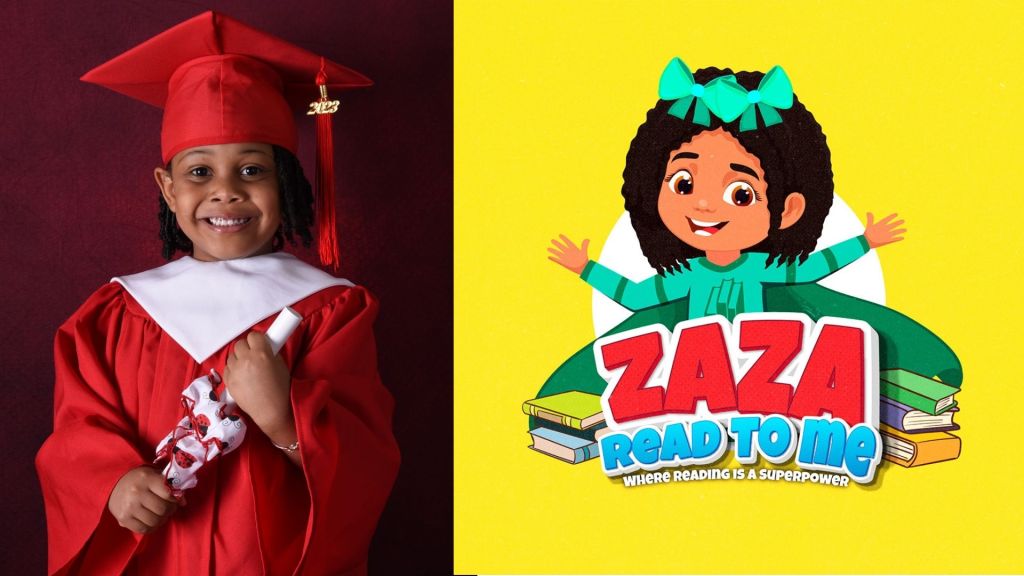By Ariyana Griffin
Special to the AFRO
Five-year-old Zion Phillips has become a part of the less than 1 percent of members to test into Mensa, the largest and oldest national intelligence quotient (IQ) society in the world.
Due to her high achievement as a kindergartener, she has officially been identified as gifted allowing her to receive support and resources through the Florida Department of Education until the end of her high school matriculation.
Zion’s love for reading and learning started young; her father, Kevin Clouden, remembers her reading early and often.
“To be honest, naturally she enjoys reading. She would stay up for hours reading book after book after book,” Clouden told the AFRO. “Her mother, who is an advocate for education, placed her in a position where she was able to naturally show her intelligence.”
Clouden explained that reading is not the only thing she enjoys or has on her schedule. Being musically inclined himself, it was only right that he exposed her to instruments and music early on. But quickly, he realized she naturally had an ear for music. He shared that children usually bang on a piano until they get the hang of things, but Zion was different. She mentally registered sounds and music notes, and eventually started playing things she heard on television. To keep her enriched outside of academics she is in several extracurricular activities.
“Her schedule is one that an adult probably would not be able to keep up with. From ballet to basketball, to swimming and obviously to piano lessons,” said Clouden. “ Her ability to catch on to things very easily and be able to adapt in areas that may not be as straightforward is something we found to be just extremely astonishing.”
According to an assessment by “OCPS School Psychologist Tamika Matthews, her composite IQ is in the top 2 percent, and her non-verbal score is in the top 1 percent.”
Her mother, Anuli Phillips, shared that when Zion was young she was read to often by family members. By three-and-a-half years old, she was reading on her own. She even found a way to use reading to extend her bed time.
Around 7 p.m. all technology would be turned off, and instead Zion would pick up a book.
“She knew that if she was sitting there with a book, I wouldn’t say, ‘Okay, Zion put the book away– time to go to sleep.’ It started off with 10 minutes of reading and then 20 minutes. The next thing you know, she’d be in a room and I would forget she was there. An hour would go by and she’d be in there reading,” said Anuli.
Zion’s grandmother is an early childhood education specialist, and urged her parents to get her tested early on. “I just figured it was grandmother’s love and I didn’t think too much of it,” said Anuli. However, when she entered Zion in pre-K, her teacher started pulling her aside letting her know Zion would be getting extra work due to being ahead. The teacher even allowed Zion to read onstage at the school’s graduation. By kindergarten, Anuli knew the testing had to be done.
“She was already in the 90th percentile as far as reading, math, language, arts–everything,” said Anuli.
She started the task of reaching out to administration and school boards to see what can be done as far as advancement. The parents realized that she would get bored with the work due to being so far ahead. However, state laws made it extremely difficult.
“In the state of Florida, you can’t go into first grade no matter where you are, no matter what your test scores are, no matter what your IQ is in public schools. At least unless you turn six-years-old by September,” said Anuli. “I went to the school board, I went to the state Florida Department of Education, reached out to them to see if there was any type of exemption that they could grant her. There was not.”
Not defeated, she looked up other resources and options and came across Mensa and other gifted programs. They started the process which included recommendations from psychologists, teachers and three rounds of testing. When Zion got her scores back, she submitted them to Mensa.
She became the first student at her kindergarten to be a part of Mensa, but another student joined shortly after. Anuli expressed the importance of resources and networking to help support children who may be gifted.
Anuli shared that testing into the gifted program relies heavily on teachers and psychologists, which sometimes allows the students’ gifts to go unnoticed if the classroom is over populated. She shared that finding alternative options or outsourcing is vital to ensure that children are getting the best resources.
Mensa has annual conferences to help parents and students alike network, this is what is most important for Anuli, finding community.
“I wanted her to be able to connect with other young kids that are in the same box as her. that will have the same challenges that she will have as far as trying to find different programs. I wanted to be able to connect with the moms and dads to see what are you guys doing to challenge them and to keep them engaged with learning and with school,” Anuli shared with the AFRO. “That is what was the most important thing for me, especially her coming in as a kindergartner into Orlando’s gifted program and the state of Florida’s gifted program.”
Zion also has a Youtube Channel, Zaza Read To Me | Story Time for Kids by Kids, where she shares her love for reading and some of her favorite books with other children. She currently has over one thousand subscribers.
The post An AFRO spotlight on Black Excellence: Meet Zion Phillips, the five-year-old accepted into national society for high IQ appeared first on AFRO American Newspapers.











